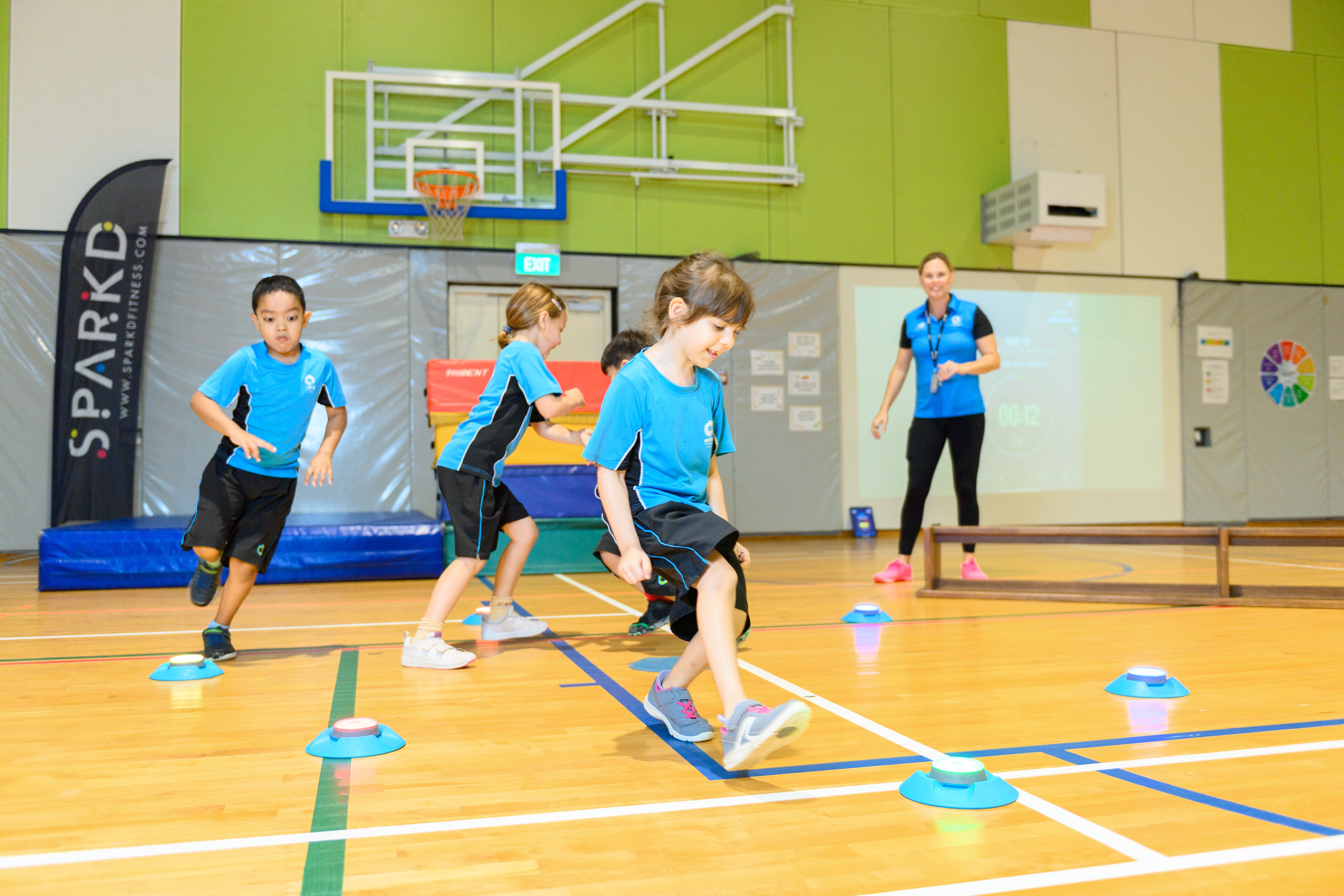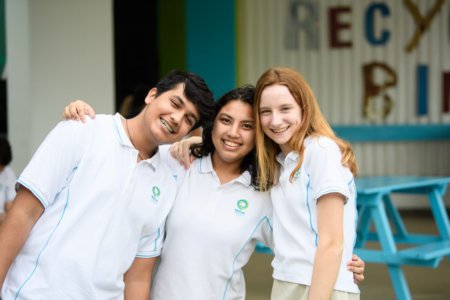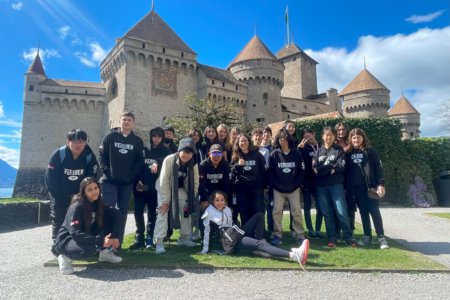Have you ever stopped to consider your child’s brain fitness? Nexus International School (Singapore) is the first in Asia to do so by collaborating with SPARKD, the leading brain fitness gym hub in Singapore. This exciting project is led by Anna Milani, founder and CEO of SPARKD, and Sarah Cole, Whole School Teaching & Learning Coordinator at Nexus.
“SPARKD aims to enhance brain and body performance at any stage and level,” says Milani. “We want to bring this type of training and experience to a wider audience – this time, with young children.”
Milani and Cole are long-time friends who first connected 11 years ago in the health and fitness industry. This collaboration brought them back together to explore if they could help children boost their minds and bodies — two areas which are often kept separate. The key question behind this partnership is: does dual-task cognitive motor training improve cognitive development in children? In other words, can this gamified learning experience better engage your child?
“We hypothesised that dual task cognitive motor training would have a positive impact on focused attention, episodic and visuospatial memory that transfers to enhance cognitive performance and learning,” says Cole.
The results of this Nexus and SPARKD collaboration are promising. In fact, over 70% of learners increased or maintained their focused attention and episodic memory. This demonstrates an improvement in cognitive development — made better by the fact that each activity brought joy to students. “Fun was an important factor in the programme as learners were excited and fully engaged for the entire lesson,” says Cole.
Over a 12-week timeline, Cole and Milani worked with Nexus’s Year 1 learners to measure their brain fitness. This kicked off with a baseline test around three cognitive domains: focused attention, episodic memory and visuospatial memory. Four classes of children took part in 30-minute sessions twice a week. These sessions used SPARKD technology and equipment and featured four stations each time.
A SmartFit Mini (a specially programmed machine connected to a tablet) is used to collect data on the completed activities under each learner’s profile so the educators can monitor their progress and development. “After completing the six-week intervention, we reassessed the cognitive domains,” says Cole. “In each child’s report, we could see if there was maintenance, improvement, or decline, by how much and what percentile this put the child in relative to their age. This information was very useful for setting goals and gave us early indications of any interventions that might be useful in the classroom.”
The SmartFit Mini allowed educators to create a programme which matches your child’s learning progress. Your child would be challenged to go outside their comfort zone and explore further in a safe space. Usually, this kind of cutting-edge technology is reserved for top athletes or rehabilitation centres, but at Nexus, they are helping young students become effective learners. “They become responsible individuals in their physical, mental health and wellbeing by creating personalised learning journeys,” adds Cole. “We have also purchased two sets of BlazePods to support decision-making, reaction time and focus.”
American basketball player Steph Curry and many top football clubs in the UK have also been seen using products similar to BlazePods to improve decision-making and reaction time on the court.

The most effective education engages thr mind, body and soul. Source: Nexus International School (Singapore)
Cole explains that the data gained from this study was shared with the Nexus Year 9 and Year 10 mathematics students as data sets to sort and analyse. Through their analysis, they found ways to improve units and objectives for the IB Sport and Exercise Health Science and IGCSE learners. The students successfully enhanced numerous units, including 5.2 Information Processing and 11.2 Notation and Analysis.
Brain fitness benefits student’s CAS (Creativity, Activity, and Service), an essential element of the IB Diploma Programme. “Beyond our school community, I can see our senior learners leading in CAS connecting with the neighbouring nursing home using the brain fitness hub as the technology was originally created for, to reduce or slow cognitive decline in older adults,” Cole says.
It is clear that the brain fitness movement at Nexus helps students at every stage of their learning. Cole adds that none of this would have been possible without the support of SPARKD. So much research and knowledge is evolving at a rapid rate, especially because of driven researchers. “We are also collaborating with local universities such as Nanyang Technological University and professors at the National Institute of Education to ensure research continues to benefit education globally and locally,” she says.
Want your child to improve their brain fitness? Click here to apply now.
Follow Nexus International School (Singapore) on Facebook, LinkedIn, and Instagram.













